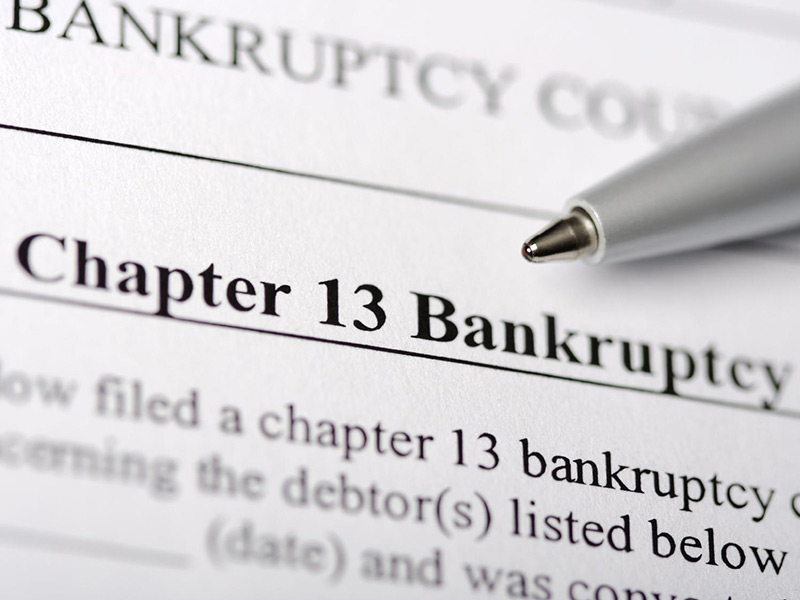
Chapter 13 Bankruptcy
Bankruptcy is a process in which a debtor can eliminate or repay debts under the protection of the Federal Bankruptcy Court. The two most common types of Bankruptcy are Chapter 7 and Chapter 13.
Bankruptcy is often portrayed in a negative light because of what comes to mind when we hear going bankrupt. The term bankrupt is often associated with high debt, being broke and having no money for basic bills. Bankruptcy is a positive option when you’ve suffered a hardship and are now dealing with unmanageable debt. The events leading up to bankruptcy are very important; if you lost your job and are failing to make ends meet for you and your family, bankruptcy might be a good option. If you’ve spent too much money because you’re irresponsible with your finances, you’d be better off with a strong budgeting plan before you consider declaring bankruptcy. Because every bankruptcy case is different, the most important thing to remember is that people’s opinions don’t matter when it comes to doing what is right for you and family. Before making any rash decisions, we encourage all individuals considering bankruptcy to seek the advice of an experienced bankruptcy attorney.
Declaring Bankruptcy
People declare bankruptcy for all sorts of reasons. One of the most common factors influencing a person’s decision is that they feel as though they have no other means to pay down their debts and get back on track financially. Regardless of why you went bankrupt, when you actually file for bankruptcy, it is nothing more than an admittance that you are overburdened with finances and are proactively looking for a debt solution. It’s important that you file for bankruptcy in a way that will protect your assets and yourself because many people don’t realize that making a mistake in bankruptcy court can get your cased dismissed allowing your creditors to come after you for all of the debts you owe.
Benefits of a Chapter 13 Bankruptcy
One of the benefits of a Chapter 13 Bankruptcy is that you are able to reorganize your debts and negotiate the terms of your payments. As a debtor in Chapter 13, you are held responsible for your current debts but will be put on a payment plan schedule that makes it much easier for you to pay off your debt. Another huge benefit to a Chapter 13 Bankruptcy is that it can prevent a foreclosure. Unlike a Chapter 7 bankruptcy, individuals who file for a chapter 13 are able to get back on their feet faster, repairing their credit and getting their finances back in order.
Filing for Bankruptcy is a serious decision. While there are many perks to both types of bankruptcies, it is important that you learn how to protect yourself when filing a bankruptcy. Making a mistake when filing a bankruptcy in the bankruptcy court can be a financial nightmare. Additionally, some debts are not eligible to be discharged through either bankruptcy. For more information, take a look at my blog entry about when to file and when not to file for a bankruptcy.
